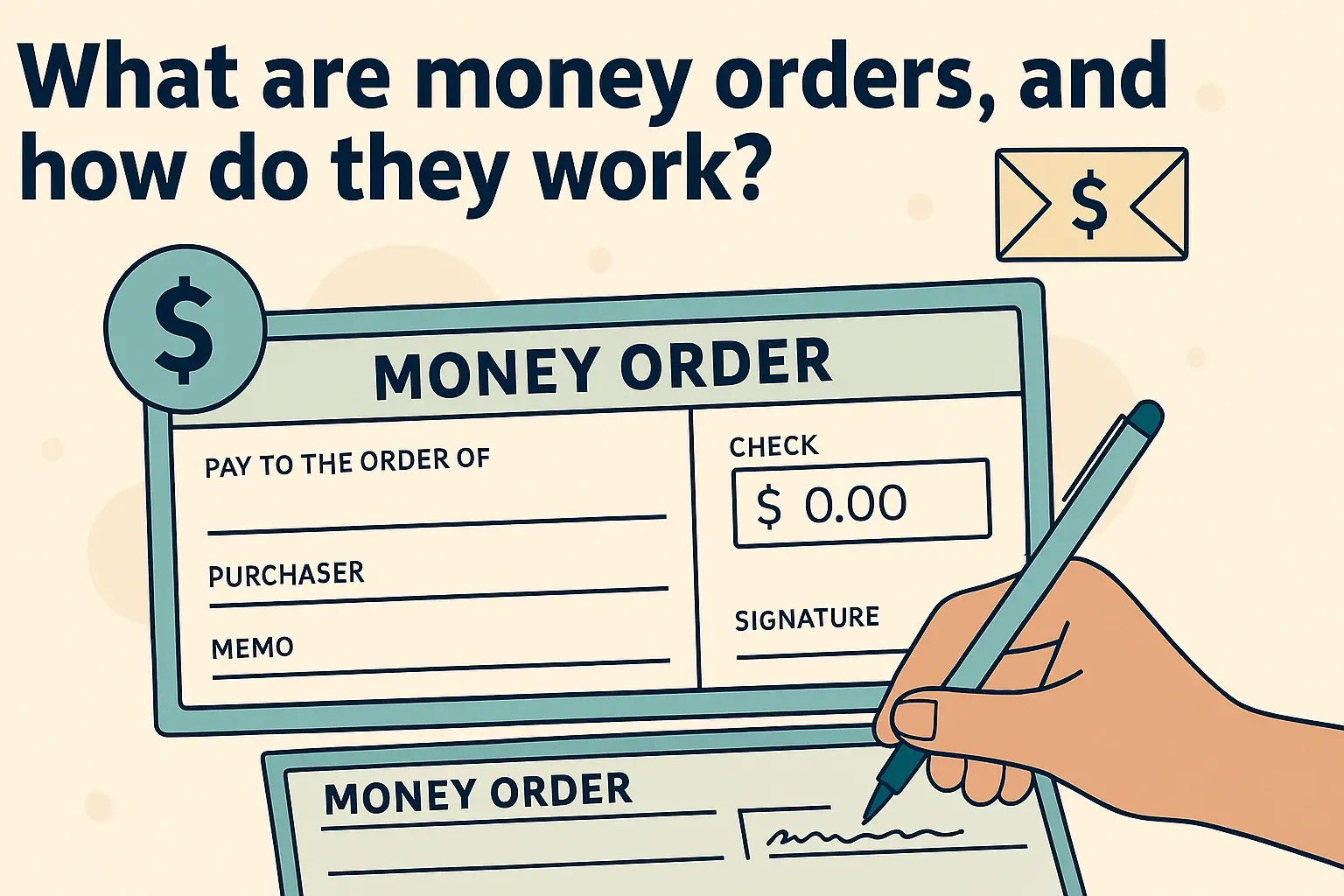-
Posted on: 23 Aug 2024

-
Selling your home is a significant milestone, often accompanied by excitement and anticipation. However, amidst the packing and open houses, a crucial question arises: What happens to your existing mortgage? Understanding the fate of your old home loan is paramount for a smooth and financially sound transaction. This comprehensive guide delves into the intricacies of handling your mortgage when selling, covering payoff processes, loan assumptions, porting options, and more.
Understanding Your Existing Mortgage
Before diving into the selling process, it's essential to understand the details of your current mortgage. Key aspects to consider include:
- Outstanding Loan Balance: The remaining amount you owe on your mortgage. You can find this on your latest mortgage statement or by contacting your lender.
- Interest Rate: The annual percentage rate (APR) you're paying on the loan.
- Loan Term: The original length of the loan (e.g., 30 years, 15 years).
- Prepayment Penalties: Some mortgages, particularly older ones, may include penalties for paying off the loan early. Check your loan documents to see if this applies.
- Escrow Account: If you have an escrow account, it holds funds for property taxes and homeowners insurance. Understanding how this is handled during the sale is important.
The Most Common Scenario: Paying Off the Mortgage
The most common and straightforward approach to handling your mortgage when selling your house is to pay it off using the proceeds from the sale. Here's a detailed breakdown of the process:
1. Listing Price and Net Proceeds
Your listing price is a critical factor. Work with a real estate agent to determine a competitive and realistic price based on market conditions, comparable sales, and the condition of your property. It's crucial to estimate your net proceeds after deducting all costs associated with the sale, including:
- Real estate agent commissions
- Closing costs (title insurance, escrow fees, transfer taxes, etc.)
- Outstanding mortgage balance
- Repairs and improvements to prepare the house for sale
2. The Escrow Process and Title Company
The sale of your house typically involves an escrow account managed by a title company or escrow company. This neutral third party holds the funds and facilitates the transfer of ownership. Here's how it works:
- Buyer Deposits Funds: The buyer deposits the purchase funds into the escrow account.
- Title Search: The title company conducts a title search to ensure clear ownership and identify any liens or encumbrances on the property.
- Payoff Request: The escrow company requests a payoff statement from your mortgage lender. This statement details the exact amount needed to pay off the loan, including principal, interest, and any applicable fees.
- Closing Day: On closing day, the escrow company uses the funds from the buyer to pay off your mortgage.
- Mortgage Discharge: Your lender then records a mortgage discharge (also known as a satisfaction of mortgage) with the county recorder's office, officially releasing the lien on your property.
3. Understanding the Payoff Statement
The payoff statement is a crucial document. It's important to review it carefully to ensure accuracy. The payoff amount might differ slightly from the outstanding balance on your most recent mortgage statement due to accrued interest and other fees. Pay close attention to:
- The date the payoff is valid. Payoff statements typically have an expiration date.
- Any prepayment penalties (if applicable).
- Fees for recording the mortgage discharge.
4. What Happens to Your Escrow Account?
If you have an escrow account, the funds held in the account will be refunded to you after the mortgage is paid off. This typically happens within a few weeks of closing. The refund will cover any unused funds held for property taxes and homeowners insurance.
Alternative Scenarios: Loan Assumption and Porting
While paying off the mortgage is the most common scenario, there are alternative options, although they are less frequently used.
Loan Assumption
Loan assumption allows the buyer to take over your existing mortgage. This means they assume responsibility for the loan, including the interest rate and terms. However, loan assumptions are relatively rare because:
- Not All Mortgages Are Assumable: Most modern mortgages include a "due-on-sale" clause, which requires the loan to be paid off when the property is sold. FHA and VA loans are often assumable, but even then, the buyer must meet specific eligibility requirements and be approved by the lender.
- Buyer Must Qualify: The buyer must meet the lender's creditworthiness and income requirements to be approved for the loan assumption.
- Seller's Liability: Even with an assumption, the seller may still have some liability for the loan if the buyer defaults, unless the lender provides a complete release.
If you believe your mortgage might be assumable, consult with your lender and a real estate attorney to understand the potential benefits and risks.
Porting Your Mortgage
Mortgage porting allows you to transfer your existing mortgage to a new property. This can be advantageous if you have a low interest rate and want to avoid paying prepayment penalties or obtaining a new mortgage with potentially higher rates. However, mortgage porting is not widely available.
- Limited Availability: Only a small number of lenders offer mortgage porting.
- Requirements and Restrictions: Lenders that offer porting typically have specific requirements and restrictions, such as time limits and loan-to-value ratios.
- New Property Approval: The new property must meet the lender's appraisal and eligibility requirements.
If you are interested in porting your mortgage, contact your lender to inquire about their policies and eligibility requirements.
Refinancing Before Selling: A Risky Strategy
Some homeowners consider refinancing their mortgage before selling, perhaps to access equity or lower their interest rate. However, this strategy is generally not recommended for the following reasons:
- Closing Costs: Refinancing involves significant closing costs, which can eat into your potential profits from the sale.
- Time Investment: The refinancing process can take several weeks, which may delay your selling timeline.
- Uncertainty: Market conditions can change during the refinancing process, potentially impacting your ability to sell at your desired price.
- Lack of Benefit: The potential benefits of refinancing (e.g., lower interest rate) are often outweighed by the costs, especially if you are selling soon.
In most cases, it's best to avoid refinancing shortly before selling your house.
Tax Implications
Selling your house can have tax implications, particularly if you make a profit on the sale. Here are some key considerations:
- Capital Gains Tax: If you sell your house for more than you paid for it (plus the cost of any improvements), you may be subject to capital gains tax.
- Capital Gains Exclusion: The IRS allows homeowners to exclude a certain amount of capital gains from the sale of their primary residence. As of [Current Year], single filers can exclude up to $250,000, and married couples filing jointly can exclude up to $500,000.
- Consult a Tax Professional: It's crucial to consult with a tax professional to understand the specific tax implications of your sale and to ensure you are taking advantage of all available deductions and exclusions.
Seeking Professional Guidance
Navigating the complexities of selling a house and handling your existing mortgage can be challenging. It's highly recommended to seek professional guidance from:
- Real Estate Agent: A real estate agent can provide valuable insights into market conditions, help you price your property competitively, and guide you through the selling process.
- Mortgage Lender: Your mortgage lender can provide accurate information about your loan balance, payoff process, and any potential penalties.
- Real Estate Attorney: A real estate attorney can review contracts, protect your legal rights, and provide guidance on complex legal issues.
- Tax Professional: A tax professional can help you understand the tax implications of selling your house and ensure you are compliant with all applicable tax laws.
Conclusion
Understanding what happens to your old home loan when selling your house is essential for a smooth and financially successful transaction. By understanding the payoff process, exploring alternative options like loan assumption and porting (if available), and seeking professional guidance, you can navigate the selling process with confidence and ensure that your mortgage is handled correctly. Remember to review your loan documents, obtain a payoff statement from your lender, and consult with qualified professionals to make informed decisions that align with your financial goals.









